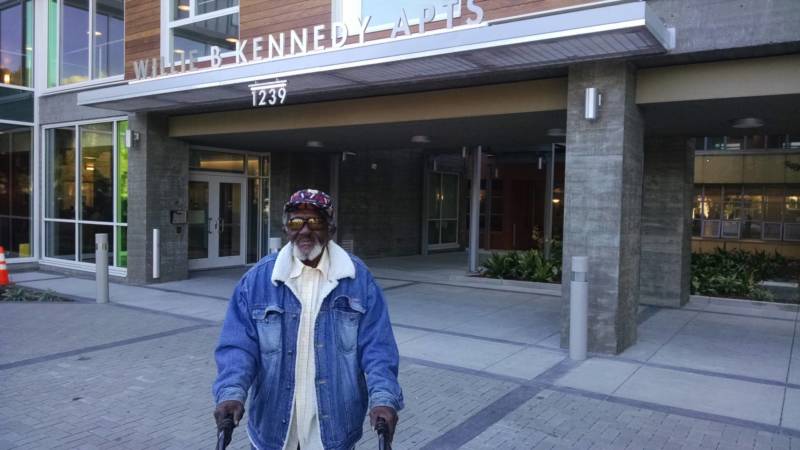San Francisco officials unveiled an ambitious spending plan for a proposed $500 million affordable housing bond they hope to put on the ballot in November.
S.F. Supervisors Announce Plans for $500 Million Affordable Housing Bond

Close to half of the funding — $210 million — would jump-start construction of new low-income housing, with much of the remaining amount geared toward building more affordable units for seniors and restoring the city’s stock of dilapidated public housing facilities.
In all, the bond could fund the construction of 2,000 units of affordable housing in the city over the next four years, according to Mayor London Breed and Norman Yee, president of the San Francisco Board of Supervisors, who formally introduced the proposal to the board on Tuesday.
Co-sponsored by Supervisors Vallie Brown, Ahsha Safaí, Catherine Stefani and Shamann Walton, the proposal still needs the support of at least three additional board members to qualify for the November 2019 ballot. It would then require a two-thirds majority of voters.
“We're not doing business as usual in this city,” said Breed, who announced the proposal at the Willie B. Kennedy Apartments, an affordable senior housing development. “We're changing how we do affordable housing in San Francisco.”
Breed, who grew up in public housing just blocks from City Hall, emphasized that the funds would be used to support a range of affordable housing options, benefiting both low- and middle-income residents.
“As someone who unfortunately had to live in some of the most terrible conditions for over 20 years of my life, I will always make sure that the residents of public housing are prioritized,” she said, adding, “We [also] can't forget our middle-income residents.”
Breed and Yee co-chaired a working group of community leaders, housing activists and developers to determine how the bond would be spent. The board has until July to amend the proposal, and could opt to change the total amount at stake.
Here’s how the funds would be allocated based on the current proposal:
-
- $210 million to “finish the construction, acquisition, and rehabilitation of low-income housing” serving residents earning 80% or below the Area Median Income (AMI) — which was $94,7000 in 2018, according to the Mayor’s Office of Housing and Community Development)
- $150 million “to repair and rebuild distressed public housing and its underlying infrastructure"
- $90 million to build new affordable rental units for seniors
- $30 million to acquire and rehabilitate existing rental housing that’s at risk of losing its affordable status
- $20 million for “new affordable housing opportunities” for educators and middle-income residents earning 80% to 175% of AMI, through down-payment assistance loans and the purchase of building or land for new construction
The $500 million bond is the latest in Breed’s trifecta of affordable housing proposals she want to put before voters in November.
Another initiative, which Breed announced last month and can place on the ballot with just her signature, would rezone hundreds of public parcels — with the exception of public parks — to dramatically expand the amount of land in the city available for construction of 100% affordable and teacher housing.
Breed also introduced a new charter amendment to speed up construction of 100% affordable and teacher housing projects by exempting them from the often lengthy public appeals and discretionary review process, in which neighborhood groups can challenge previously approved proposals, sometimes stalling development for years. The amendment needs the support of at least three additional supervisors to qualify for the ballot.
“I’m out here because I’m trying to cut down on the time that it takes to get a project like that done,” Breed said last month. “Get them built, and get them built now.”
